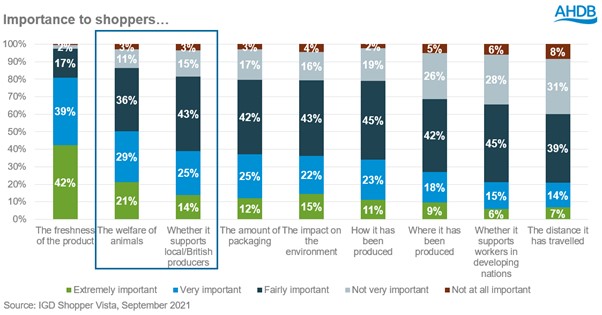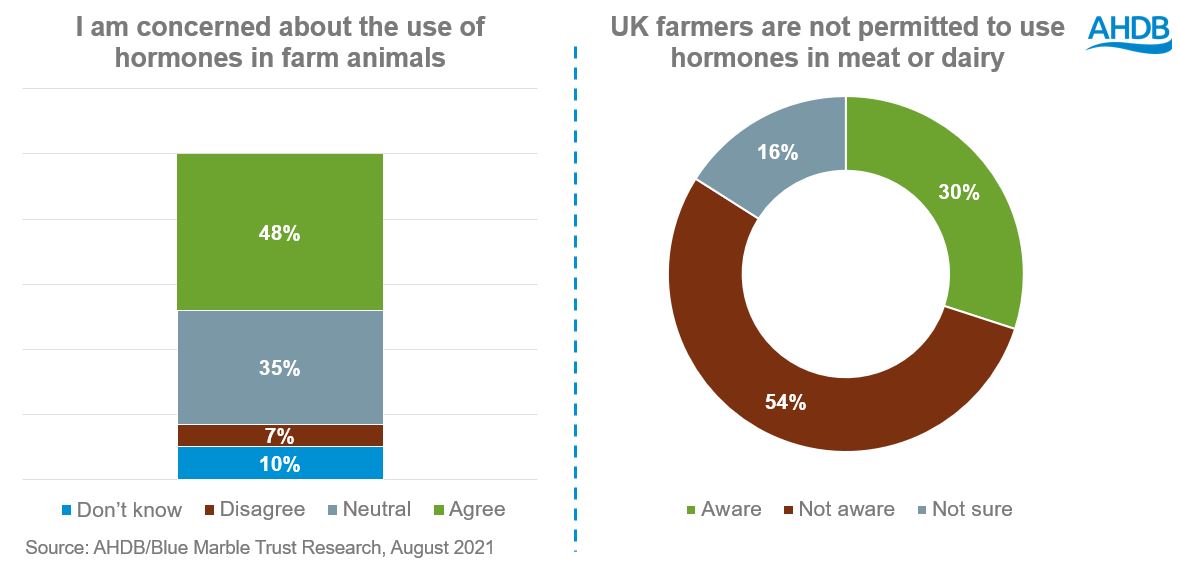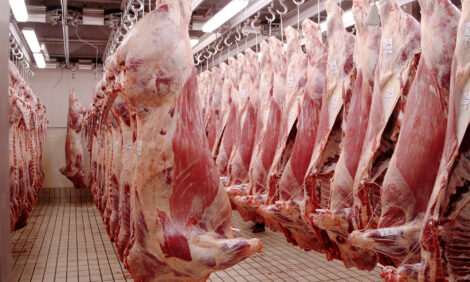



Monitoring consumer attitudes to welfare is crucial - AHDB
Although COP26 and the environment has dominated headlines in recent months, consumer concerns about animal welfare have never been far away.A recent AHDB/Blue Marble study showed that the humane treatment of farm animals has joined the environment, rising energy costs, Covid-19 and the state of the NHS as the topmost tier of societal concerns with 40% expressing they are very concerned - up 4% pts since last year. This is supported by IGD data that suggests 86% of people believe welfare of animals is important to them.

Importance in practise?
The large majority (79% according to YouGov Aug 2020) of British consumers believe that generally, the UK has high welfare standards (even though there may be some isolated compliance issues). A perennial issue is that although consumers would like to feel reassured, they do not necessarily want to pay for that by purchasing a higher welfare product. This is demonstrated by the comparatively low uptake of premium tier pork, with just 12% (92,000 tonnes) of the total pig meat sold having an outdoor claim (95% Outdoor Bred (ODB) (52 w/e 16 May 2021 Kantar). Higher average price is a huge driver with consumers paying £9.27/kg for a product with an outdoor claim compared to £5.67/kg for standard.
Once at fixture, welfare becomes even less important as a purchase driver with consumers looking for price, appearance and a versatile product that fits in with their meal planning foremost. This is primarily because consumers believe British produce is of a high welfare standard and they trust the farming industry and their retailer to perform due diligence in ensuring product meets expectations. Those who are most sceptical of welfare claims, and vocal about issues, are frequently those who have already made the decision to exclude meat from their diets entirely.
Misconceptions?
Frequently consumers have been misinformed by pressure groups about British production standards. For example, 48% of people are concerned about the use of artificial hormones in farm animals and antibiotics finding their way into British food when in fact the use of hormonal growth promotants in meat production has been banned in the European Union since 1989 – and has been incorporated into UK law recently as part of its withdrawal from the EU. But only 30% of consumers are aware that UK farmers are not permitted to use growth hormones (Source: AHDB/Blue Marble Aug 2021).
There is an important role to play, therefore, in tackling untruths and misinformation spread by other parties. AHDB has played a key role in this as can be seen by the response to misleading advertising by both Oatly and Meatless Farm.

What are the reputational risks if welfare standards are not adhered to?
Negative exposés and/or misleading stories in the press or social media can have a big impact. In a Feb 2020 study by Kantar, we found that 44% of people exposed to negative media said they were eating less meat these days compared to only 26% who were not exposed. There are signs that, when prompted, consumers have more specific concerns around animal health and welfare than in the past, highlighting greater concern when prompted over a number of areas (Source: AHDB/Blue Marble Trust research Aug 2021). The deepening awareness about specific health issues such as mastitis or lameness demonstrate that consumer concerns about animal welfare go deeper than system of production or access to pasture and need addressing holistically looking at welfare outcomes.
Understanding where consumers have been misled and with which messages is vital to allow industry to prioritise their responses.


